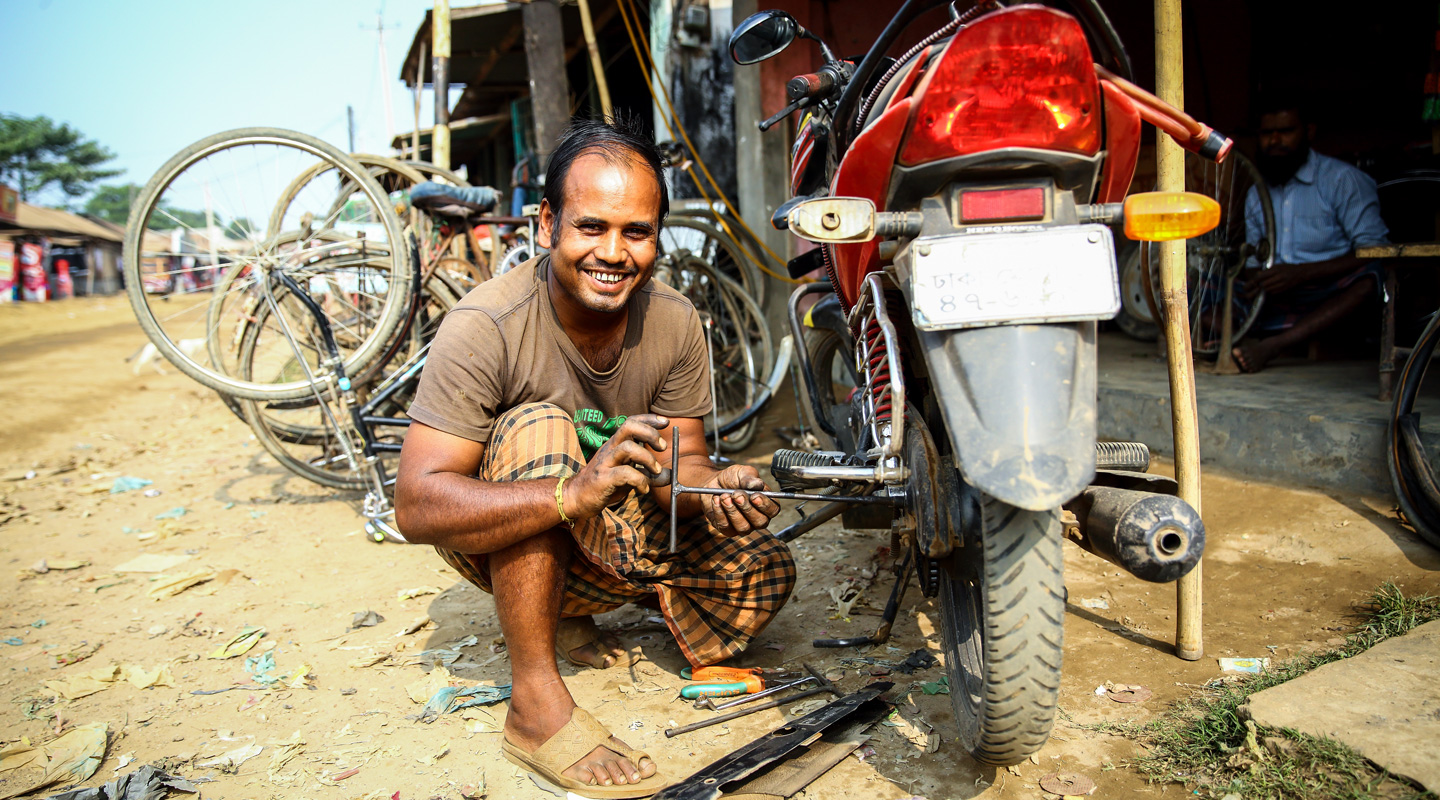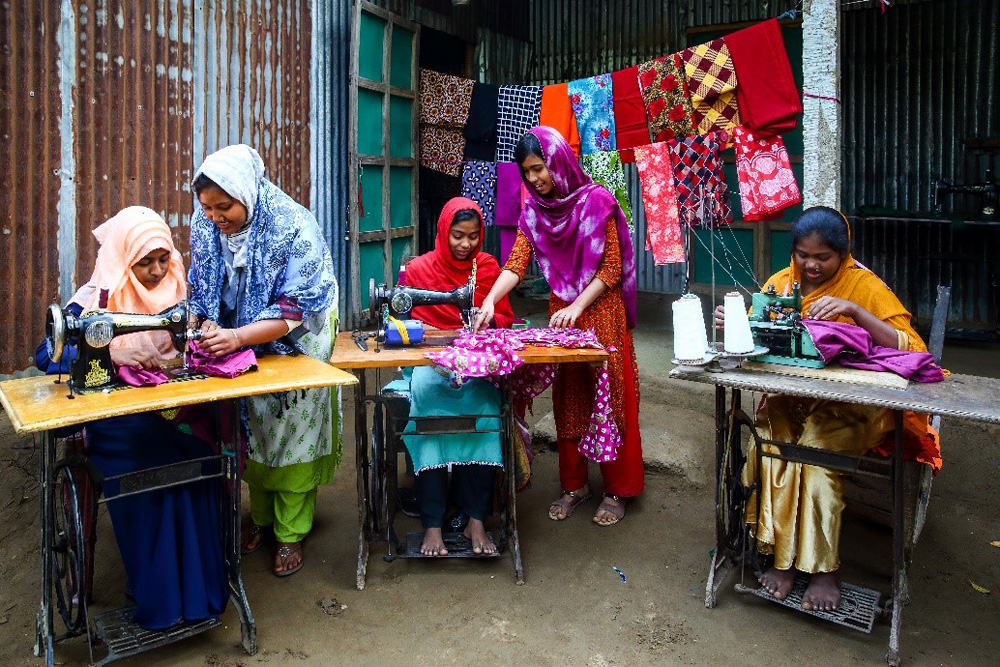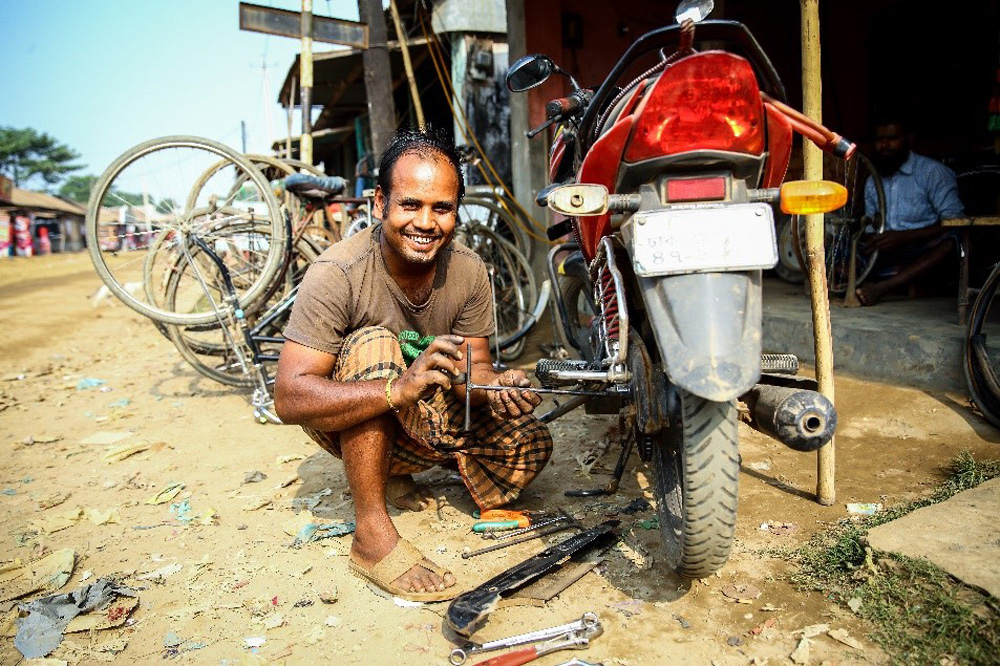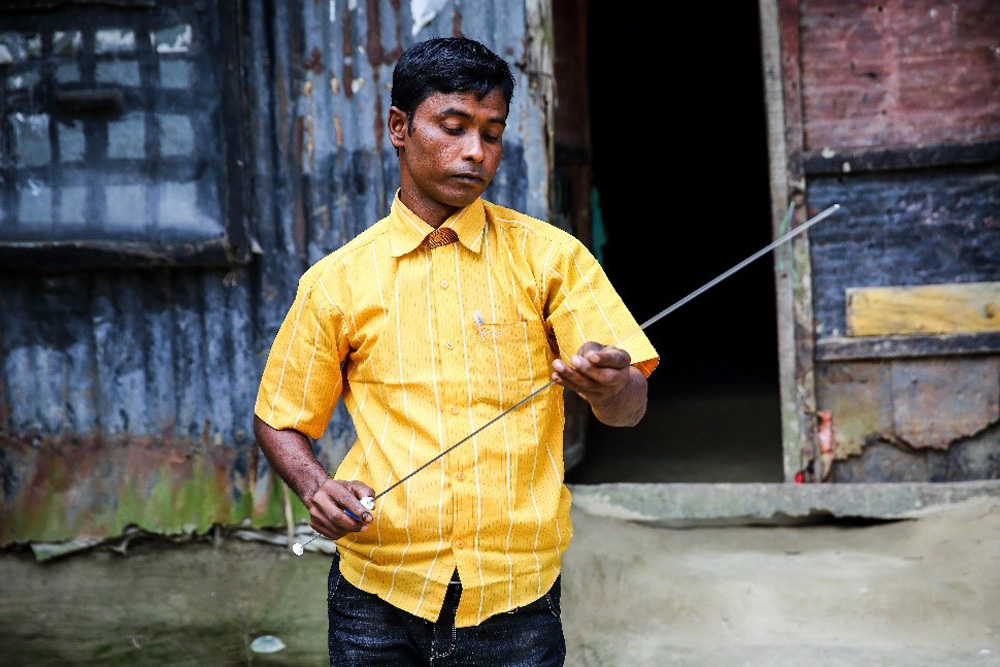Meet 3 young people in Bangladesh upskilling their communities
IFAD Asset Request Portlet
Asset Publisher
Meet 3 young people in Bangladesh upskilling their communities
Estimated reading time: 3 minutes
For six months a year, the people of Bangladesh’s Haor region are trapped. Heavy rains and flooding make it almost impossible to leave this wetland region. With limited access to schools, markets and jobs, many young people migrate in search of more stable opportunities. Those who stay can only find seasonal work in agriculture, as the floods submerge rice fields, fish farms and vegetable gardens.
IFAD is hoping to change this. Through the Haor Infrastructure and Livelihood Improvement Project - Climate Adaptation and Livelihood Protection (HILIP-CALIP), young people receive training in everything from horticulture and candle-making to plumbing and welding, so they can find new and alternative ways of generating an income while staying in the region.
“Hands-on training helps young people gain experience and prepare themselves for a demanding job market and service industry,” explains HILIP-CALIP Project Director, Gopal Sarker. “Our programme to equip young people in remote areas with new and diverse skills is a game-changer, because they offer opportunity to those who have little.”
Meet three young people upskilling themselves and their communities.
A stitch in time saves nine
 |
| Parveen (second from the left) trains a group of girls and women in her home yard. For a fee, Parveen provides sewing machine stations and plain clothes for her students to learn cutting and sewing. © IFAD/GMB Akash |
After the birth of her first child, Parveen (34) got a job in a tailoring shop to supplement her husband’s seasonal income as an agricultural labourer. But she had her sights set higher.
Through HILIP-CALIP, Parveen received training in cutting, sewing, and tailoring. She passed on what she learned to two neighbours, and word quickly spread about her sewing classes. Using the fees from these classes, Parveen opened her own tailoring business and employs three assistants.
“Previously, I could not imagine that proper job training could change everything to this extent,” says Parveen. “Now, I see my students learning and working at the same time. With that income, some pay for their own education, while others invest it in their children’s education. It is rewarding to witness what the girls from my village can do, beyond household chores or helping with traditional agricultural work.”
The nuts and bolts of a thriving business
 |
| Olok fixes a motorcycle at his workshop. © IFAD/GMB Akash |
Olok (28) tinkered with bicycles and small electrical parts to become his neighbourhood’s most sought-after mechanic. To take his business to the next level, he enrolled in HILIP-CALIP’s motorcycle maintenance and repairs training. He is now a fully qualified motorcycle mechanic, having earned his certificate from the Bangladesh Technical Education Board.
“Having my own business means I can work throughout the year, even during monsoon season,” Olok tell us. “If my workshop gets flooded, I can still work on-call. And now with better roads and infrastructure, more people in Haor villages are using motorcycles. With my skills, I see my business expanding.”
To pass on his knowledge, Olok runs motorcycle maintenance workshops which are attended by young people who are otherwise unemployed throughout the long flooding season.
Vet on the moo-ve
 |
| Siddiqur checks his veterinary tools. He got the toolbox for free while he received professional training. © IFAD/GMB Akash |
Though the flooding in the Haor limits what many young people can do, others have created opportunities from adversity by providing services in this typically underserved area. Because the region is under water for so much of the year, visiting the vet with cattle in tow is a challenge. Siddiqur Rahman’s door-to-door veterinary service, therefore, is in high demand.
Following a 15-day training at the Bangladesh Agricultural University, Siddiqur (25) assists livestock owners with everything from artificial insemination and first aid, to vaccinations and deworming. Using his earnings, he plans to open a veterinary drug store in his village.
“By providing artificial insemination, first aid, and vaccination for livestock, I’m not only serving the needs of farmers in hard-to-reach areas, but I’m also making them aware of the health care needs of livestock,” says Siddiqur. “It feels good to be in a business that supports others’ livelihoods.”
Through HILIP-CALIP trainings, the young people of Haor are less dependent on the natural resources of this climatically vulnerable area. Alternative sources of income and good jobs mean they don’t have to migrate to earn a decent wage. By passing on their knowledge, these young people are creating a positive knock-on effect. And by starting their own businesses and creating jobs, they’re giving other young people even more reason to stay.
Find out more about IFAD’s work in Bangladesh.
Read Qasa Alom’s blog about his experience travelling to flood-afflicted regions of Bangladesh.
Publication date: 12 August 2022